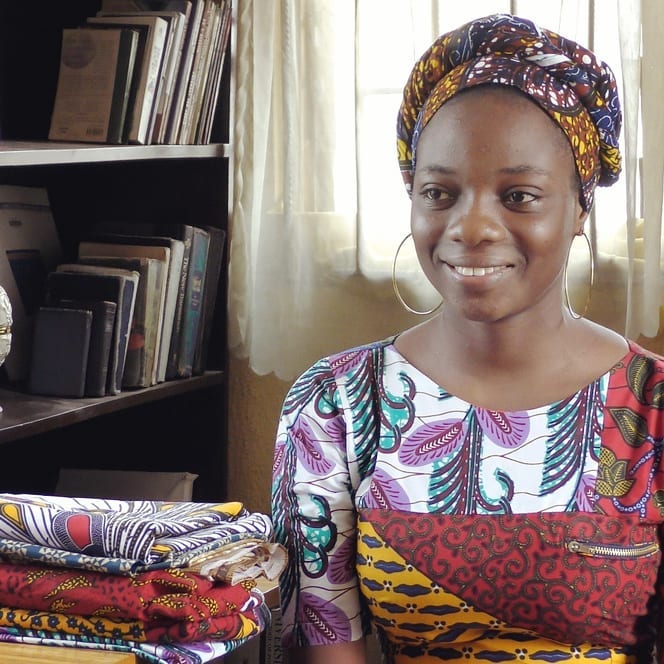Gone are the days where shoes were worn just for functionality. Shoe is fashion and can become a key driver to promote sustainable fashion. They tell you a story about the wearer. With so much technological and industrial revolution, one would think that most of our shoes are made by robots. If you mean human robots, then yes! But hell no, shoe production demands extreme series of work processes which sometimes can only be done by human hands, precise craftsmanship and patience.
With some shoes having over 200 work processes to finish just a pair, imagine how much jobs could pop up in Europe is we were to promote sustainable fashion. The only problem is that one might not be able to afford 10 pairs of shoes. Anyway, we end up not really wearing most of them. So let’s be frank, apart from crude oil and bananas, shoes must come from our economic allies in Asia, and now Africa.
No matter what type of shoe we love, be it ballerinas, sport shoes, low,- high,- or medium heels, flip flops, boots, even the barefoot shoes (do not ask me what those are, but they are healthier than heels for sure), no matter what style of shoe we wear, we leave footprints every day with them. Footprints having either positive, neutral or negative impact in other people’s lives like that of Selema and thousands of Selema.
Who the hell is Selema?
Selema is closer to you than you think. Yes, she hand sews sport shoes for large international companies groups far away in China and the other Selemas are in Vietnam, India, Ethiopia….I will not tell you her personal story, because its not your business. But I will tell you about the “silent deal” we are making with her.
Every year, about 21 billion shoes are produced globally and about 40% is for Europe. So if you live in Europe and buy shoes, you probably have a silent deal with Selema. A silent deal where you say, “make these shoes as quick as possible and as cheap as you can, dear!”
20% goes into designa nd conecpt.
But before we can launch the deal with Selema, our shoe has to go through the first stage of its birth, the concept phase. What is trendy? What is functional? What do you as a customer want to buy? How much are you ready to pay? What material should be used? How should it look like? What details do we need? Design, prototype. All these thoughts and work process cost money and time, sometimes up to 24 months before you get to be able to buy the shoe. This could cost over 20% of the money you finally pay for the shoe. Still no deal for Selema.
Your shoe finally gets to the next phase which is production.
This is the part that we actually have less insight, less control, less interest. Here we are lost and disconnected with our future shoe. Actually this process demands a serie of work processes like leather tanning, hand stitching, special cutting etc. Leather tanning for example is very often done with chemicals that could result in severe work injury. Out of the multiple processes needed to complete your pair of shoes, some have to be done by hand, by Selemas hand. This is when we hold a silent deal with her.
Imagine social media without fashion
Since we will buy the shoe anyway later, she receives 10 to 20 cents now to complete the tedious hand work needed on that pair. Selema is fast and make even 9 more pairs per day so that our neighbours and friends would not go barefooted to the next party. At the end of the day, she gets about 1.5 euros. Gracious right? She probably would not have received that 1.5 euros if there was not this kind of job, right? Or maybe we could change the perspective for a second. We probably would not have content for instagram if we can’t afford a new shoe every time we wanted one.
Disregarding any perspective, Selema cannot pay pension or health insurance with that daily income, but she can count on her daughter to take care of her at old age. In such an environment, only family matters. Now is it still surprising to you that Selema sells her daughter to a man who would bring her to Europe to work as a prostitute and earn over 100 euros per day. Even after debt is paid back to the trafficker, Selema would receive more than 5 euros daily from her daughter. An inevitable side income indeed!
Retailers have the power to influence trends
Selema finished the shoe and now it can go to the last phase to get to us in about 8 months. Before us, retailers are invited to screen the shoe. Which shoe will survive the trend hunt? Which shoe will be buried before its birth? This destiny is influenced by the retailers. Which shoe receives more orders, goes into production and Selema can rejoice for steady main income. Retailers, therefore have the power to influence trends. The power to give Selema hand work more financial value, more ethical value, the power to give our shoes a face, a voice, a name.
Retailers do not only have power but also the largest portion of the cake, leaving about 35 – 40% of the money you pay for a shoe to them. They have to survive, just like Selema. They do not have side income, no daughter to sell to human traffickers! They have bills to pay, tax to pay, social security to pay, rent to pay, light to pay, holidays to pay, therapies against burnout to pay, donations to give, they barely even make ends meet. Unlike Selema who has none of the above to pay but a daughter to sell. Our footprints must change!
Companies with power and politics must take responsibility.
Also, we, we consumers cannot plead not guilty. We cannot play the victim here. Yes some fair shoes could be ugly and expensive sometimes, but if you invest time and ambition, you will find just one pair of fairly made shoes that fit the rest “I had no choice but buy” trendy shoes in your closet. Just that one piece is enough, for now! If you have ideas and know of nice labels, brands, structures, people, groups, individuals creating or advocating for shoes that improves the livelihood and increases the income of Selemas, please comment beneath and let us know about it.
Xoxo
Joana




